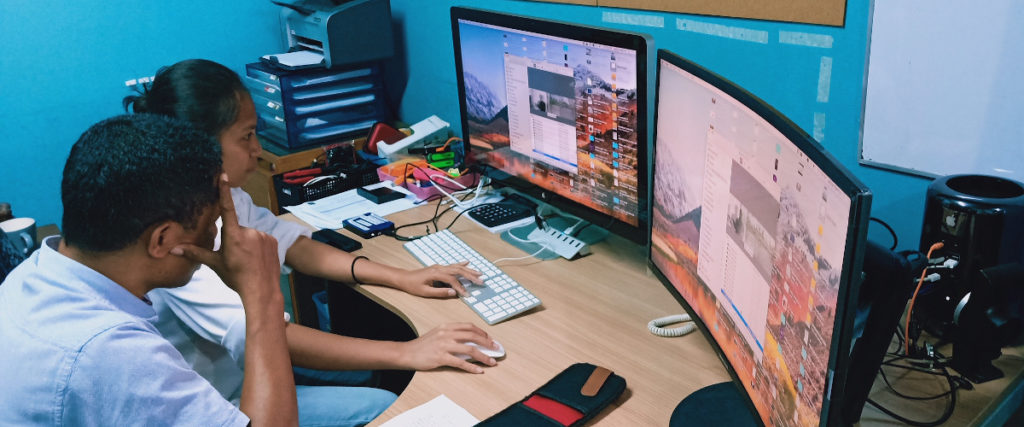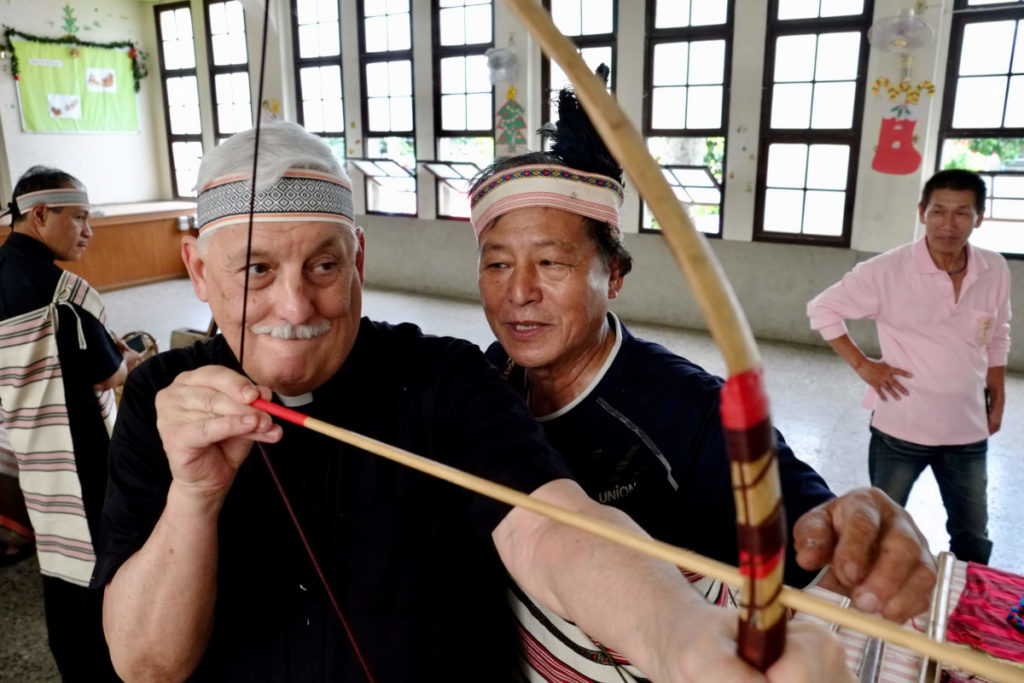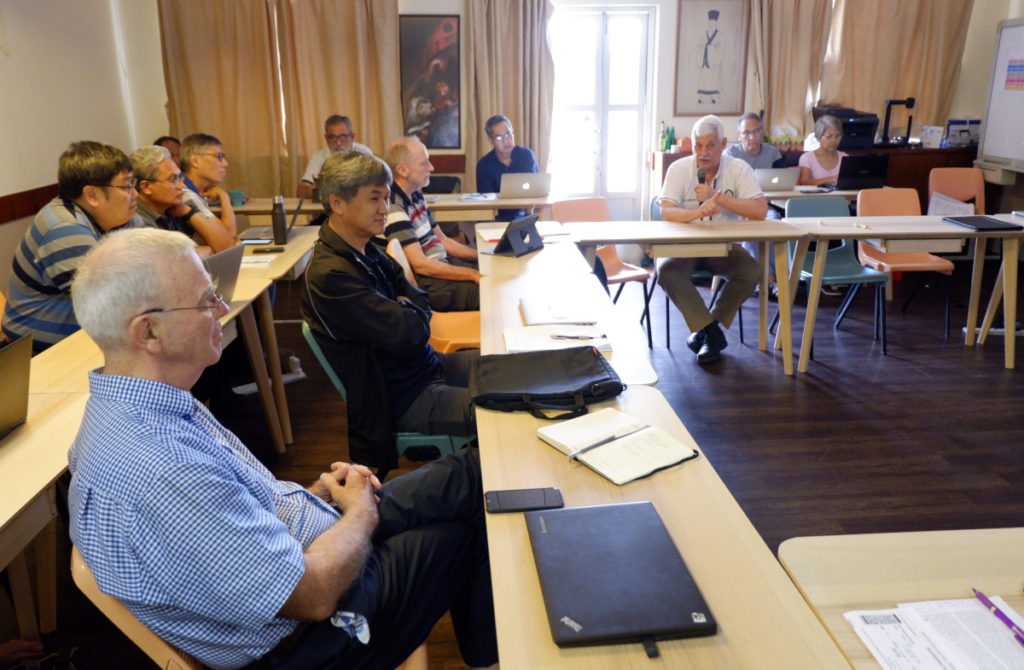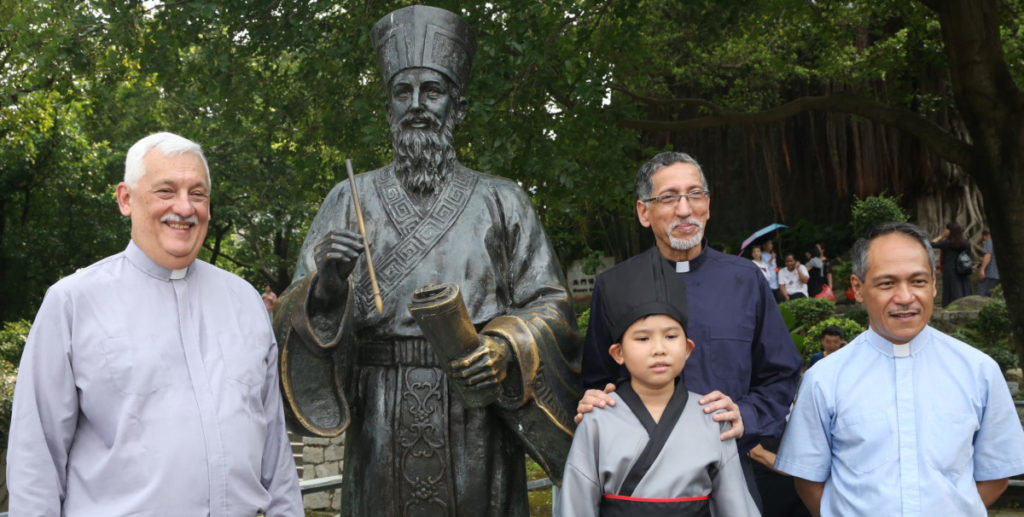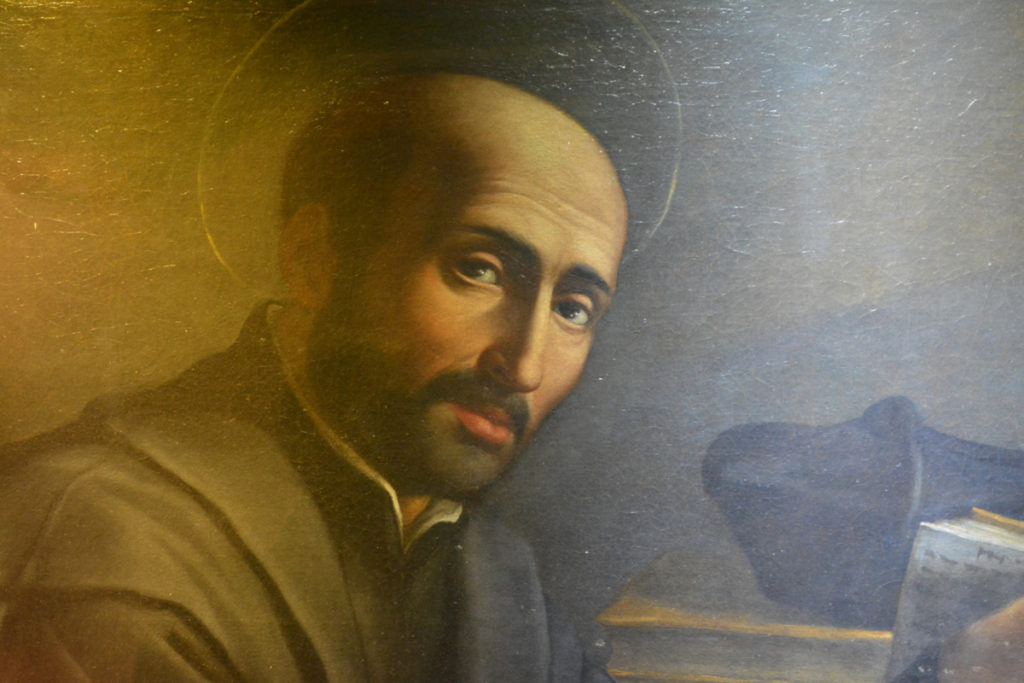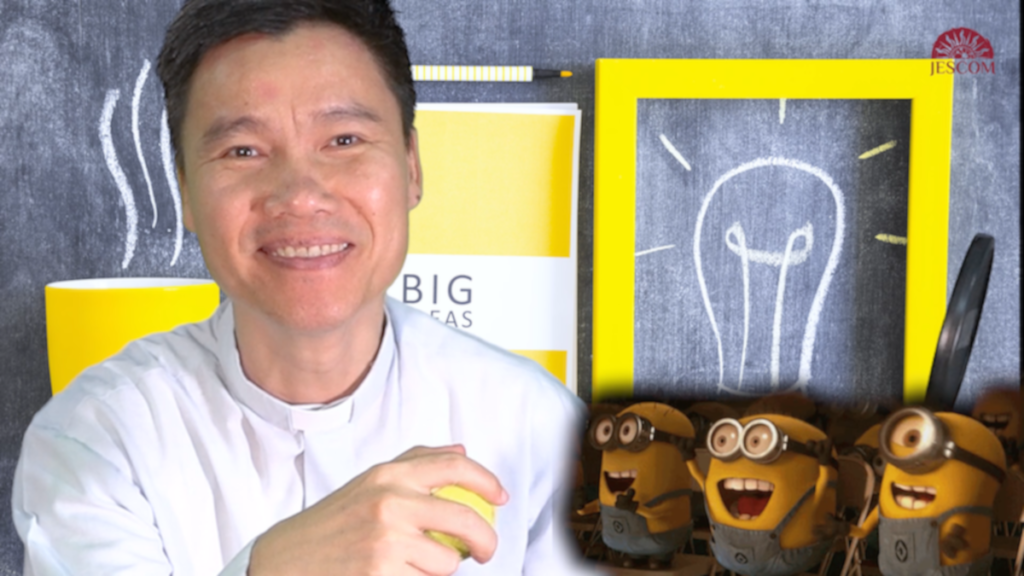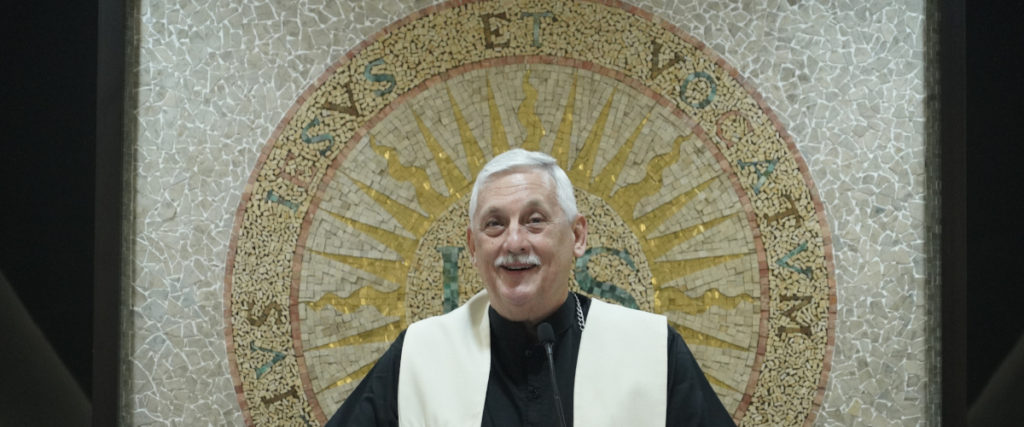“We raise our voice for the Amazon”
The Latin American Church through the Latin American Episcopal Council (CELAM) has released a statement titled, “We raise our voice for the Amazon”, expressing their concern for the seriousness of the fires ravaging the Pan-Amazon region. They described the incident as a “tragedy that is not only of local, not even regional impact, but of planetary proportions”.
The statement released on August 22 comes on the heels of the assembly of the Synod of Bishops for the Pan-Amazon Region in October. Pope Francis convened a Special Synodal Assembly on the Pan-Amazon in 2017 “to find new ways for the evangelisation of that portion of the People of God, especially the indigenous, often forgotten and without a perspective of a good future, also for the cause of the crisis of the Amazonian forest, lung of fundamental importance for our planet”.
CELAM said that with the massive burning of the Amazon, the hope of the Synod “is now tarnished by the pain of this natural tragedy”. Quoting the Synod’s preparatory document (instrumentum laboris), the bishops of Latin America and the Caribbean said: “The Amazon is a region with a rich biodiversity, it is multi-ethnic, multi-cultural and multi-religious, a mirror of all humanity that, in defense of life, demands structural and personal changes of all human beings, States and the Church. This reality goes beyond the strictly ecclesiastical field of the Amazon, because it focuses on the universal Church and also on the future of the entire planet.”
They urged the governments of the Amazonian countries, especially Brazil and Bolivia, the United Nations and the international community “to take serious measures to save the lungs of the world”. Recalling the words of Pope Francis in his homily for the beginning of the Petrine Ministry in 2013, the bishops called on all those who occupy positions of economic, political and social responsibility, and all people of good will to “be custodians of creation, of God’s design inscribed in nature, guardians of the other, of the environment; let’s not let the signs of destruction and death accompany the path of this world of ours.”
In July the Jesuit Conference of Provincials in Latin America and the Caribbean launched an awareness and fundraising campaign to protect the Amazon. The Jesuits through Servicio Jesuita a la Panamazonía has been working to defend and promote environmental sustainability and the indigenous communities in the Amazon through social, educational and pastoral projects in Brazil, Bolivia, Peru, Colombia, Ecuador, Venezuela and Guyana.
Click here to read the full statement of the Latin American Episcopal Council.
JesCom Philippines leads workshop for CPA-Timor Leste
Jesuit Communications Foundation (JesCom), the media arm of the Philippine Province of the Society of Jesus, conducted a training workshop on documentary scriptwriting and financial management for the staff of Casa de Produção Audiovisual (CPA), the Jesuit film production studio in Timor-Leste.
Executive Director Fr Emmanuel Alfonso SJ said that an integral part of JesCom Philippines’ responsibility as Secretariat for Social Communications of the Jesuit Conference of Asia Pacific (JCAP) is to assist its affiliate organisations in the conference.
The five-day workshop, held from August 12 to 16 at Ateneo de Manila University, took CPA’s new producers, graphic illustrators and treasurer, headed by Scholastic Rui Nunes Muakandala SJ, through the ropes of documentary scriptwriting, financial management, Quickbooks and Adobe Premier operations.
JesCom Finance and Administrative Manager Jennifer Chua said that a step-by-step approach proved beneficial in helping the East Timorese staff improve their working knowledge of accounting and finance, especially the use of relevant software.
“I gave them an overview of financial management, its importance, understanding accounts, financial planning, financial monitoring and internal controls. I was able to share with them some of the best practices that they can apply to their organisation,” said Chua.
“It was important to show them one by one all the features and functions of Quickbooks and how they are applicable to their day-to-day operations,” she added.
Meanwhile, JesCom Creative Director Pauline Mangilog-Saltarin’s objective was to teach the participants scriptwriting techniques for documentaries, which the CPA staff could immediately put to use in writing and producing their own films during their Manila visit, and upon returning home.
“The staff were all very receptive. I could tell that they really wanted to learn and expand their knowledge in scriptwriting and production,” said Mangilog-Saltarin.
The opportunity to help in the development and growth of its partner organisations in the JesCom network in Asia Pacific reflects JesCom Philippines’ leadership and commitment to its ministry of media evangelisation.
“For the past few years JesCom Philippines has been at the forefront of training JCAP members,” shared Mangilog-Saltarin. “I think sharing our knowledge and best practices to other countries is indicative of how JesCom, as a Jesuit institution, is fulfilling its mandate and vision.”
By Anthony Perez, JesCom Philippines
The Gospel in action in Taiwan
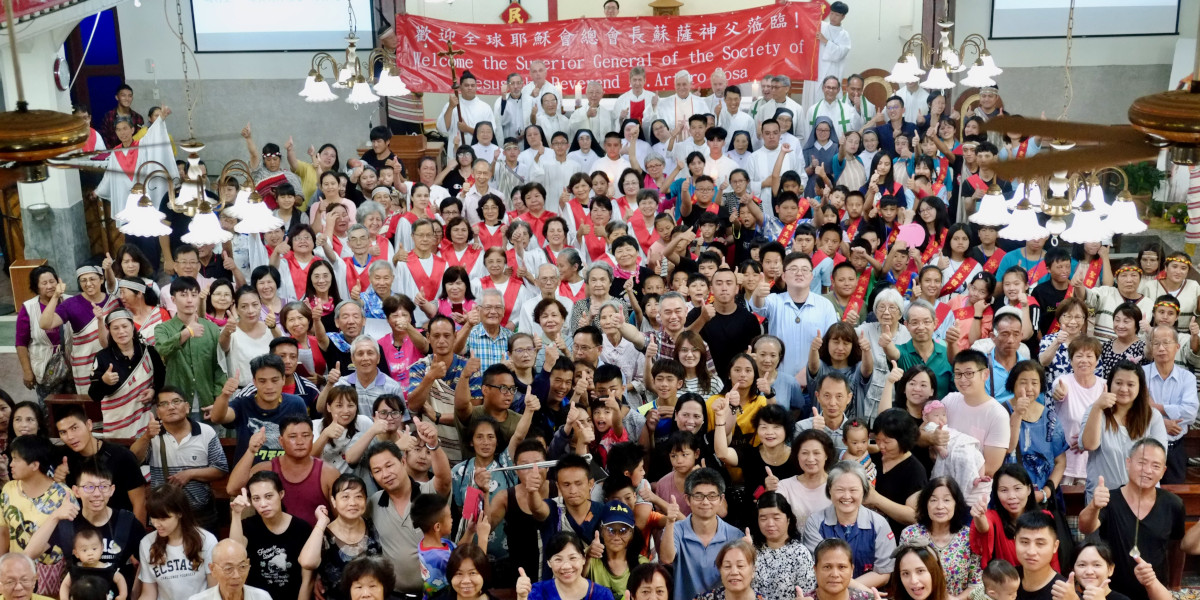 “Choosing life in a context filled with fear and anger and insecurity seems like a daunting task. But it is not impossible – not for followers of Christ.” This was Fr General Arturo Sosa’s message in his homily for the advance celebration of the Feast of St Ignatius in Taipei.
“Choosing life in a context filled with fear and anger and insecurity seems like a daunting task. But it is not impossible – not for followers of Christ.” This was Fr General Arturo Sosa’s message in his homily for the advance celebration of the Feast of St Ignatius in Taipei.
The Superior General of the Society of Jesus visited Taiwan from July 27 to 29 accompanied by his Regional Assistants Fr Jojo Magadia SJ for Asia Pacific and Fr Vernon D’Cunha SJ for South Asia, as well as Fr Pierre Bélanger SJ of the Jesuit Communication team in Rome and Fr Stephen Chow SJ, the Chinese Provincial.
Fr Sosa’s message to never lose faith, despite the difficulties was the main takeaway of his entire trip to the country. “Deuteronomy mentions two actions”, he shared. “‘Choose life’, it says, and then right after that, you are told, first, ‘to love the Lord your God’ and second, ‘to walk in his ways’.”
In his meeting with the Magis youth in the Tien Educational Center, Fr Sosa encouraged the young people not to be afraid to face the world, even to change it, to keep walking ahead because God would be always be with them as a beacon to guide them.
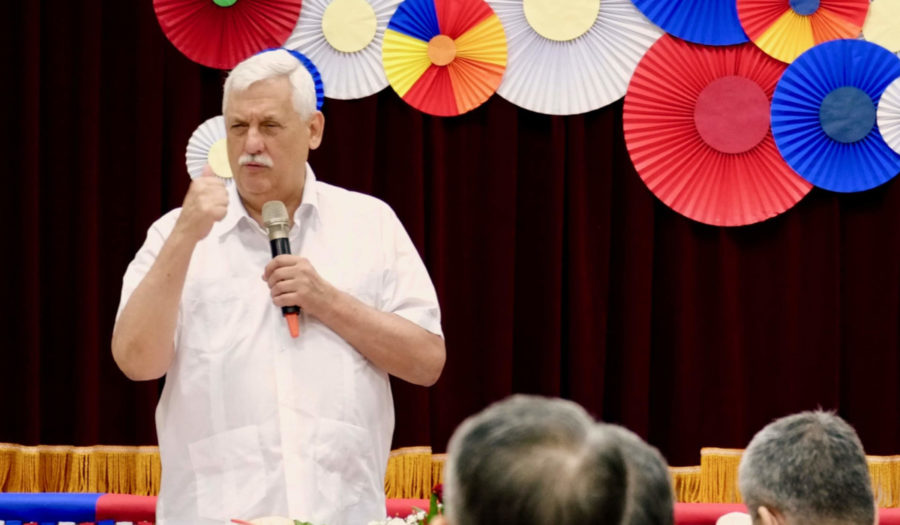 The Superior General was able to see how this courageous faith is being lived out in the social apostolates of the Jesuits in Taiwan. On his first day in Taipei he went to the Rerum Novarum Social Service Center founded by Fr José Ellacuría SJ in 1971. Over the years as society has changed, Rerum Novarum’s services have expanded from low-paid, overworked labourers to migrant workers in Taiwan and migrant workers on fishing boats subject to unequal treatment. The centre manifests the Gospel in action. Fr Sosa showed particular concern for the migrant fishermen.
The Superior General was able to see how this courageous faith is being lived out in the social apostolates of the Jesuits in Taiwan. On his first day in Taipei he went to the Rerum Novarum Social Service Center founded by Fr José Ellacuría SJ in 1971. Over the years as society has changed, Rerum Novarum’s services have expanded from low-paid, overworked labourers to migrant workers in Taiwan and migrant workers on fishing boats subject to unequal treatment. The centre manifests the Gospel in action. Fr Sosa showed particular concern for the migrant fishermen.
In Chutung, an hour-and-a-half’s drive from Taipei where Jesuits have served the indigenous populations since the 1950s, Fr General experienced the culture of aboriginal Christians. He concelebrated the Sunday Mass which was a showcase of multiculturality with parishioners who are Han Chinese, Hakka people, Atayal and Saisiyat indigenous peoples, and migrants from Vietnam and the Philippines. Next to the church, there was a display of indigenous hunting and other tools. Fr Sosa wore an aboriginal jacket and tried to draw a bow.
Many other meetings were held to enable Fr Sosa to get to know the Jesuits and partners involved with the work of the Society of Jesus in Taiwan. His audience with lay collaborators included no less than the Vice President of Taiwan, Chen Chien-jen. They shared with Fr General how they live out and promote the Universal Apostolic Preferences. In his address to the teachers and students of Fu Jen Faculty of Theology of St Robert Bellarmine, Fr Sosa praised the theologate for nurturing men and women able to take on a variety of responsibilities within the Church. He also had an opportunity to meet the apostolic mission collaborators of the Jesuits at Fu Jen Catholic University and got to know their work.
Fr General’s visitations are of course opportunities to strengthen Jesuit brotherhood. Before he ended his trip, Fr Sosa paid a visit to the elderly Jesuits in St Joseph’s Province Infirmary. Then he spoke to the Jesuits in Taiwan and presided at a Mass with them.
A serene spot in Hong Kong
The Chinese Province of the Society of Jesus–which includes Macau, Hong Kong and Taiwan–was the second leg of Fr General Arturo Sosa’s recently concluded Asian trip. Over several days in Hong Kong, Fr General celebrated Mass, met with students, teachers and alumni from the two Jesuit-run schools (Wah Yan College Kowloon and Wah Yan College Hong Kong), encountered many collaborators from the various ministries of the Chinese Province, and visited Cardinal Tong, Bishop of Hong Kong. There was a dragon dance and dinners hosted by alumni, all amidst the growing tensions on the city streets where thousands marched in protest. The Superior General kept a frenetic pace, much like the vibrant place he was visiting.
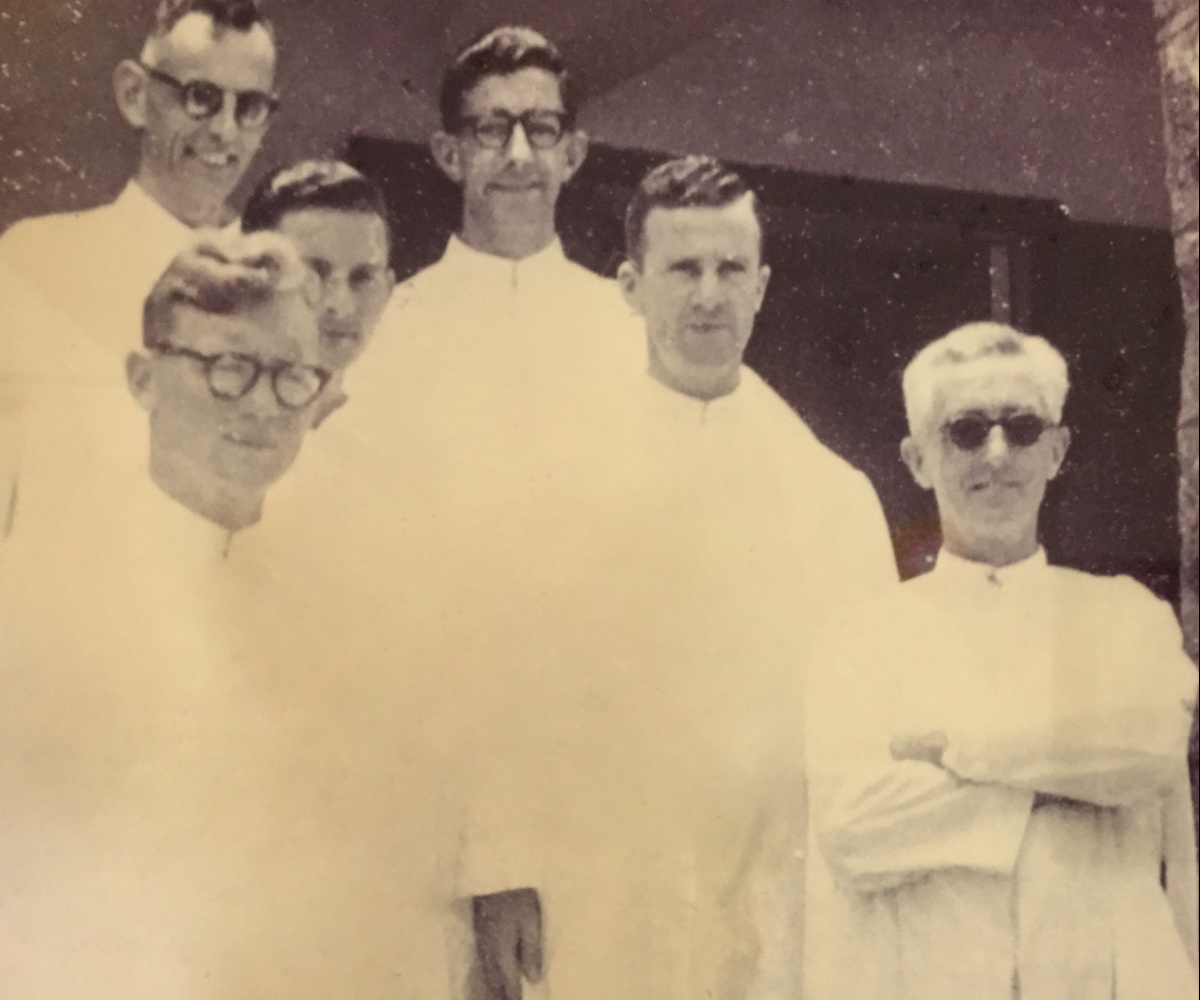 Above the din of Hong Kong, the Jesuits have an oasis of serenity on Cheung Chau, a small island where there are no cars and no skyscrapers. Xavier House, set on a hill overlooking the water, is an Ignatian spirituality centre. In the 1950s, when the first Irish Jesuit missionaries came to Cheung Chau, it was a school. Today, Xavier House offers retreats and other activities. It was also the venue for the Major Superiors assembly of the Jesuit Conference of Asia Pacific, who were joined by the delegates, secretaries, coordinators and directors of work.
Above the din of Hong Kong, the Jesuits have an oasis of serenity on Cheung Chau, a small island where there are no cars and no skyscrapers. Xavier House, set on a hill overlooking the water, is an Ignatian spirituality centre. In the 1950s, when the first Irish Jesuit missionaries came to Cheung Chau, it was a school. Today, Xavier House offers retreats and other activities. It was also the venue for the Major Superiors assembly of the Jesuit Conference of Asia Pacific, who were joined by the delegates, secretaries, coordinators and directors of work.
In between his appointments in the city, Fr General Sosa spent a few days at Xavier House with the JCAP group, where he gave a talk on assimilating the Universal Apostolic Preferences. The participants spent time in spiritual conversation in order to deepen their understanding of the preferences. Daily Masses were held in the beautiful chapel of Xavier House, which frames the view of sea and sky. Prayers were offered for Hong Kong’s political situation, and despite the turmoil, Xavier House was an oasis of peace and serenity in an otherwise chaotic world. A sign on the front door of Xavier House says Wish you finding God in all things. Indeed, the best reminder came from Fr General: “He is on the path with us”.
A heart that inspires other hearts
As part of Fr General Arturo Sosa’s trip to the Chinese Province, he visited Macau on July 18 to 19. Macau is an autonomous region on the south coast of China, across the Pearl River Delta from Hong Kong. With a population of 700,000 and an area of 32.9 sq km (12.7 sq mi), it is the most densely populated region in the world. Originally a sparsely populated collection of coastal islands, the territory has become a major resort city and the top destination for gambling tourism. It is the ninth-highest recipient of tourism revenue and its gaming industry is seven times larger than that of Las Vegas.
The Society of Jesus has been present in Macau from the very beginning of its own history (having been formally established in Rome in 1540), and equally from the beginning of the historical role played by the small city of Macau. St Paul’s College founded by the Jesuits in 1594 and was operative for 168 years until 1762 when the Jesuits were expelled in Macau, extended the Society’s influence beyond the city walls inside China and farther afield. During these years, 665 young Jesuits completed their formation in the College.
On the first day, Fr General Sosa accompanied by his Regional Assistants Fr Vernon D’Cunha SJ for South Asia and Fr Jojo Magadia SJ for Asia Pacific, and Fr Pierre Bélanger SJ of the Jesuit Communication team in Rome had a meeting with lay collaborators in Colegio Estrela do Mar, one of the two Jesuit schools in Macau. Around 60 people came from different social apostolates: Christian Life Community, Magis youth ministry, Macau Ricci Institute, Casa Ricci Social Services and representatives of the two schools, Colegio Estrela do Mar and Colegio Mateus Ricci. Fr General shared with them the Universal Apostolic Preferences.
The next day, Fr General visited the other Jesuit school in Macau. He addressed the primary and secondary students of Colegio Mateus Ricci at their graduation ceremonies. “You are still so young, but you carry in you the future of this world”, he said. “As you come to the end of this academic year, and begin your vacation, I invite you to think about how you can help others in new ways that you have not yet tried before.” Fr Sosa prayed for the children to have “the strength to be daring and hopeful, not for yourselves, but for the world, and for the future”.
After his brief commencement address, Fr General blessed two statues of St Ignatius in the school’s complex and visited St Anthony Church, the oldest church in Macau built by the Jesuits around 1560. Nowadays the church is served by the Korean Martyrs Congregation.
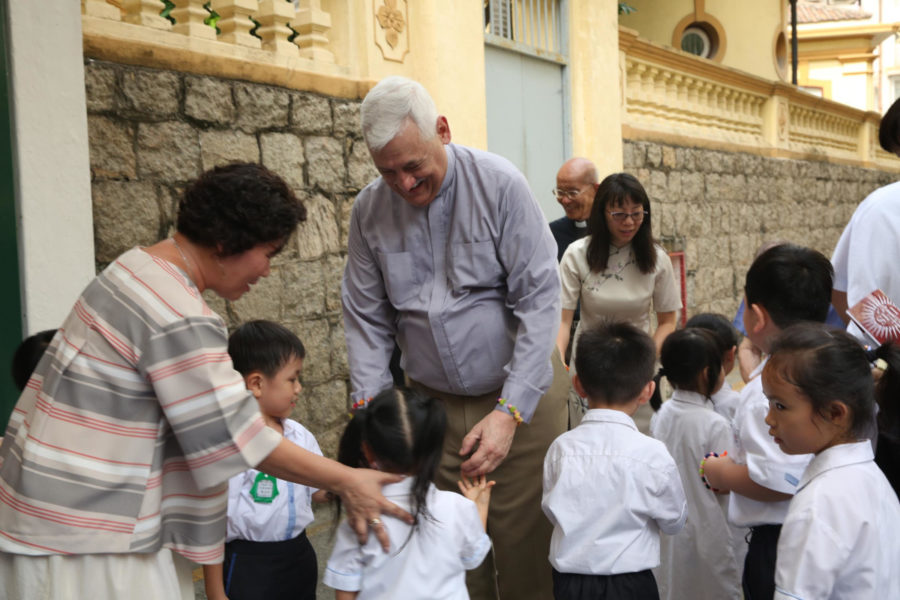 Fr General also met and greeted the staff of Casa Ricci Social Services and Macau Ricci Institute. He also had an opportunity to meet the Jesuit community in Macau. The short trip was closed by the Thanksgiving Mass for 70 years in the Society of Jesus of Fr Yves Camus SJ and 50 years in the Society of Fr Luis Sequeira SJ and Gregory Koay SJ.
Fr General also met and greeted the staff of Casa Ricci Social Services and Macau Ricci Institute. He also had an opportunity to meet the Jesuit community in Macau. The short trip was closed by the Thanksgiving Mass for 70 years in the Society of Jesus of Fr Yves Camus SJ and 50 years in the Society of Fr Luis Sequeira SJ and Gregory Koay SJ.
The experience of Fr General’s visit, albeit only brief, remains in the hearts of the many lay collaborators and Jesuits in Macau. His message in his homily during the thanksgiving Mass resonated not just with the three jubilarians but with each of us. “They have taught many young people; they have preached many homilies and touched many lives; they have accompanied searchers for the will of God through the Spiritual Exercises of St Ignatius. They have lived as missionaries, offering themselves faithfully as Jesuits”, said Fr General.
“Yet, today’s thanksgiving Mass is not just about them. It is first and foremost about a God who started it all, a God who loved first and called these three Jesuits to follow him, a God who has given them the grace to respond to His call with great zeal. This is the same God that invites each of us today. He offers his life freely, to show us what it means to love the way god loves – without counting the cost, without heeding the wounds, without seeking for any reward.”
“Having fun with theology”
Fr Nguyen Hai Tinh SJ, Formation Delegate of the Vietnamese Jesuit Province, has started a series of online video lectures on theology designed for catechists, theology students and anybody interested in theology. Each episode lasts no more than 10 minutes and uses humour and animation to capture viewers’ attention.
The videos, which are posted weekly on Jesuit Communications Vietnam’s YouTube channel, offer easy-to-understand explanations in Vietnamese on subjects related to dogmatic theology such as, Introduction to Theology, Revelation of Faith, Scripture Tradition and Magisterium, Trinity, Christology and Eschatology.
Fr Tinh currently teaches theology at St Joseph Jesuit Scholasticate and at the Catholic Institute of Vietnam of the Catholic Bishops’ Conference of Vietnam. He has a Doctorate in Sacred Theology, with a specialisation in dogmatic theology from the Gregorian University in Rome.
The Vietnamese priest has constantly sought out effective ways of teaching theology. He found that there are many videos online teaching a wide variety of subjects but it seemed to him that there was nothing on theology. This inspired him to start the online video lectures.
There are about 57 million active social media users in Vietnam and 71 per cent of those who access the Internet every day watch videos on a daily basis. Since it was launched, Fr Tinh’s videos have been watched more than 8,000 times.
In this interview, he talks with Jesuit Communications Vietnam about the process of developing each episode and how social media has helped him in his work of evangelisation.
Fr General to visit Korean, Chinese and Japanese Provinces
Superior General of the Society of Jesus Fr General Arturo Sosa SJ is set to visit Korea, Macau, Hong Kong, Taiwan and Japan in the next three weeks. This is Fr Sosa’s third official trip to the Jesuit Conference of Asia Pacific after visiting Vietnam and the Philippines last year, and Indonesia and Cambodia in 2017.
A big part of Fr General’s visits to the different conferences is to learn more about the Jesuits and their commitments in their places of work. In Asia Pacific where only three per cent of the population is Catholic, the call is clear for dialogue with religious traditions and various cultures.
In Korea, where he begins his trip on July 15, Fr Sosa will not only be meeting with the Korean Jesuits to animate and inspire them with the Universal Apostolic Preferences but also to understand the various contexts in which they work. One of these is in their mission of reconciliation. On July 16, Fr Sosa will visit Panmunjom, a small village located in the Korean Demilitarised Zone (DMZ) on the border of North Korea. The DMZ was established after the Korean War to serve as buffer zone between North Korea and South Korea.
Throughout his three days’ stay, Fr General will also learn of the intellectual apostolate and the youth ministry of the province from meetings with collaborators, staff and students of Sogang University, Jesuits in formation and young people.
Fr Sosa will next visit the Chinese Province where he will make stops in Macau, Hong Kong and Taiwan. His activities will centre around the theme, “Ignatian bridge building” and will thus include many meetings with Jesuits and lay collaborators.
From July 18 to 19, Fr Sosa will meet with lay collaborators from the two schools in Macau, Colegio Estrela do Mar and Colegio Mateus Ricci, where he will take part in the graduation ceremonies. He will also meet with the staff of Macau Ricci Institute, a study and research institution dedicated to fostering better mutual understanding between China and the rest of the world, and Casa Ricci Social Services, which helps poor and marginalised communities in China.
In Hong Kong, from July 19 to 21, Fr General will meet with Jesuits and collaborators for a sharing on the Universal Apostolic Preferences. He will also celebrate Mass for the 60th anniversary of St Ignatius Chapel in Wah Yan College Kowloon, as well as preside over the Final Vows of two Jesuit priests in Wah Yan College Hong Kong. Then on July 22, Fr Sosa will join the JCAP major superiors in their five-day assembly.
On July 27, he flies to Taipei where he will spend the next three days. He will get to know the lay partners, speak to leaders of Ignatian families on how they can be closer collaborators in living out and promoting the Universal Apostolic Preferences, and visit Jesuit parishes and the Fu Jen Faculty of Theology of St Robert Bellarmine. He will also join an advance celebration of the Feast of St Ignatius.
Fr General will conclude his visit to Asia Pacific in Japan. On August 1, he is scheduled to meet with his predecessor Fr Adolfo Nicolás SJ and later with the Japanese scholastics. He will also be going to Hiroshima for a gathering with collaborators and to talk about Servant of God Fr Pedro Arrupe SJ who was a missionary in Japan during the Second World War. One of his stops will be the Atomic Bomb Dome and the Hiroshima Peace Memorial Museum on August 3.
He returns home to Rome on August 4.
The gift of education in Cambodia
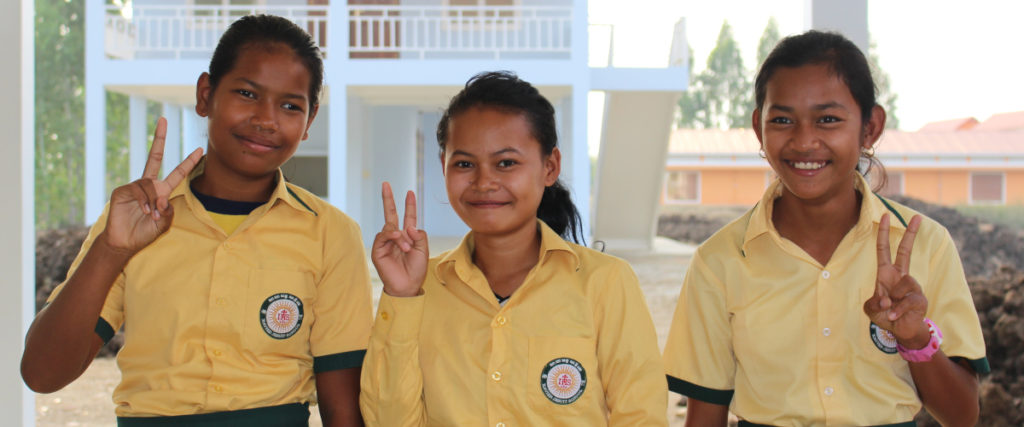 It has been 20 years since the surrender of the Khmer Rouge, but Cambodia remains deeply scarred by decades of war and conflict. One of the poorest countries in the world, it has vastly inadequate healthcare and education infrastructure. Just one in four young people finish high school and even fewer in rural communities. Sometmes children as young as 10 years old engage in unsafe and heavy work, labouring on construction sites or farms. Even if children stay in school, the standard of education in government schools is extremely low. Students at 11 or 12 years old often still can’t read or write.
It has been 20 years since the surrender of the Khmer Rouge, but Cambodia remains deeply scarred by decades of war and conflict. One of the poorest countries in the world, it has vastly inadequate healthcare and education infrastructure. Just one in four young people finish high school and even fewer in rural communities. Sometmes children as young as 10 years old engage in unsafe and heavy work, labouring on construction sites or farms. Even if children stay in school, the standard of education in government schools is extremely low. Students at 11 or 12 years old often still can’t read or write.
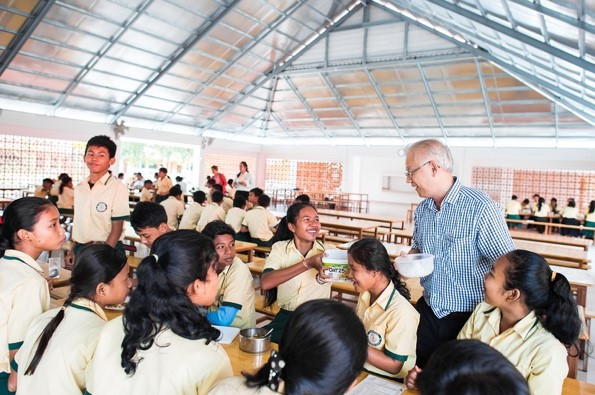
Sophea is one of many Cambodian children struggling to get an education. She lives in a rural area with her mother Mony, a single parent, who had little education herself and works as a day labourer, often travelling great distances to find employment. To educate her four children would cost $4 a day, or 80 per cent of her income. She faces a choice no one should have to make: Should I feed my children or educate them? Mony’s children, like so many others, know they must help out from an early age. The eldest child usually stops schooling to help supplement the family income. Sophea had started government primary school but could not attend regularly. She and her older brother had to find work to help Mony care for their two younger siblings.
One day Jesuit Service Cambodia (JSC) found Sophea in a bottle factory working with her mother. JSC’s outreach team travels around to poor villages in search of families that need help. They identified Sophea as a scholarship candidate for Xavier Jesuit School.
In 2015, the Jesuits opened Xavier Jesuit School (XJS) in Banteay Meanchey, one of the poorest provinces in Cambodia.
“Our goal is to convince students that you sacrifice a few years now, but then you can help not only yourself, but your family,” says Fr Quyen Vu SJ, the school’s director. “Through education these students can go on to have skills, a career, a profession.”
The school encourages independent thought instead of the usual rote-learning taught in Cambodian schools. It strives to empower students, strengthening their hearts and minds so they can learn, grow and contribute to the new future of Cambodian society.
In addition to traditional subjects like mathematics, English, chemistry, physics, biology, history, geography and agriculture, students also learn Khmer, music and art.
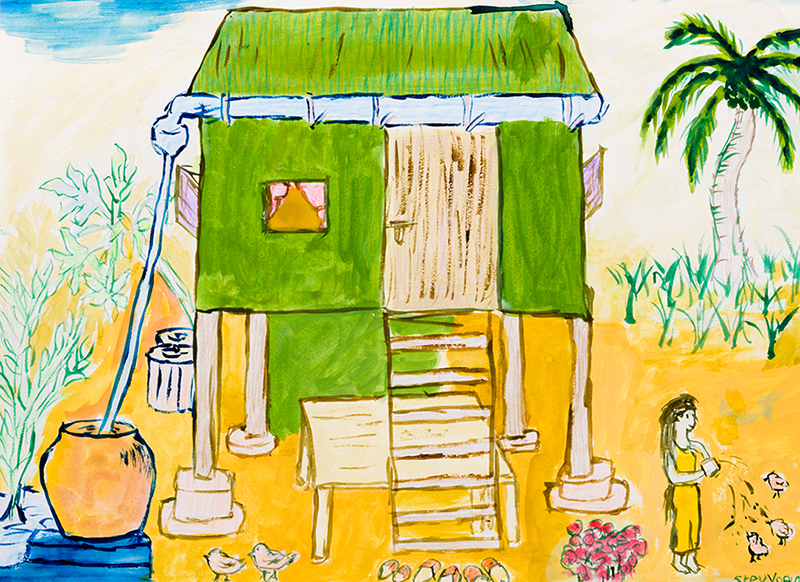
Currently 530 students attend XJS from kindergarten to Year 12. Within three years, Fr Quyen hopes to increase that to 1,210 students. XJS is committed to serving the poorest of the poor with at least 20 per cent of the student cohort to receive free education through scholarships, such as those provided by Jesuit Mission Australia.
Scholarships ease the burden for very poor families. In the short-term, families have the benefit of one less mouth to feed, while in the long-term young people help lift their families out of poverty as they use their education to become teachers and future leaders.
Sophea had a tough first year at school. She was 16 but still in Year 7, which meant she had to study with peers three or four years younger than she was and often academically more advanced. She also struggled with her guilt about leaving her mother and younger siblings.
But Mony’s vision for her daughter is strong. She encouraged Sophea to be brave and to dream of a worthwhile future. After a year, Sophea began to take younger children under her wing, and soothe their worries with her jokes and games. Today the change in her is dramatic.
“She is so full of joy!” reports Fr Quyen. “Her hard work and determination are paying off.”
Two years ago Sophea was working as an unskilled labourer. Now, she’s thriving.
To learn more about Xavier Jesuit School and the support provided by Jesuit Mission Australia, visit https://jesuitmission.org.au/program/xjs/
Fostering growth in affective maturity
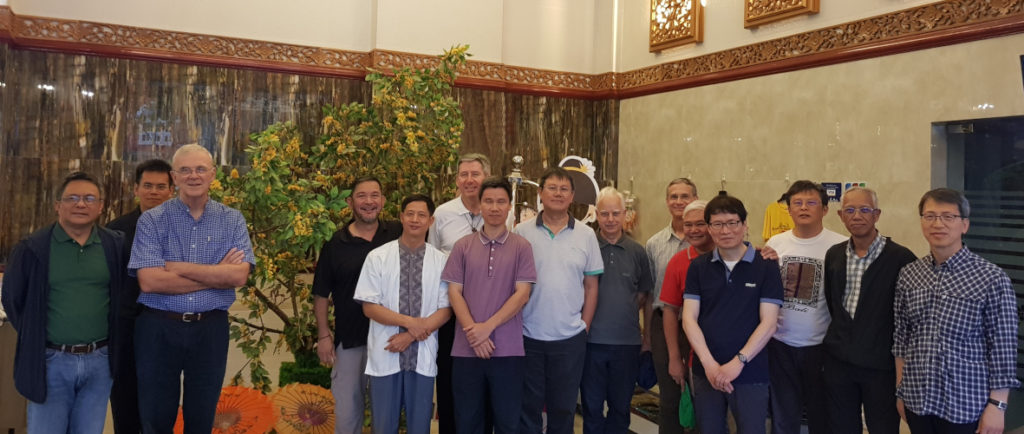 A solid human formation is foundational to every Jesuit. The recent gathering of formation delegates of the Jesuit Conference of Asia Pacific (JCAP) focussed on how to help Jesuits in formation to grow in affective maturity and celibacy.
A solid human formation is foundational to every Jesuit. The recent gathering of formation delegates of the Jesuit Conference of Asia Pacific (JCAP) focussed on how to help Jesuits in formation to grow in affective maturity and celibacy.
This year’s meeting held from June 17 to 20 in Yangon, Myanmar followed through last year’s topic on “Safeguarding the Minor”. Fr James Gascon SJ, psychoanalyst, counsellor and former director of the Center for Family Ministries in the Philippines, guided discussions on motives for living a celibate life, the theological dimensions of celibacy and sexual identity, sexual maturity and integration, boundaries, and accompaniment of homosexuals in formation.
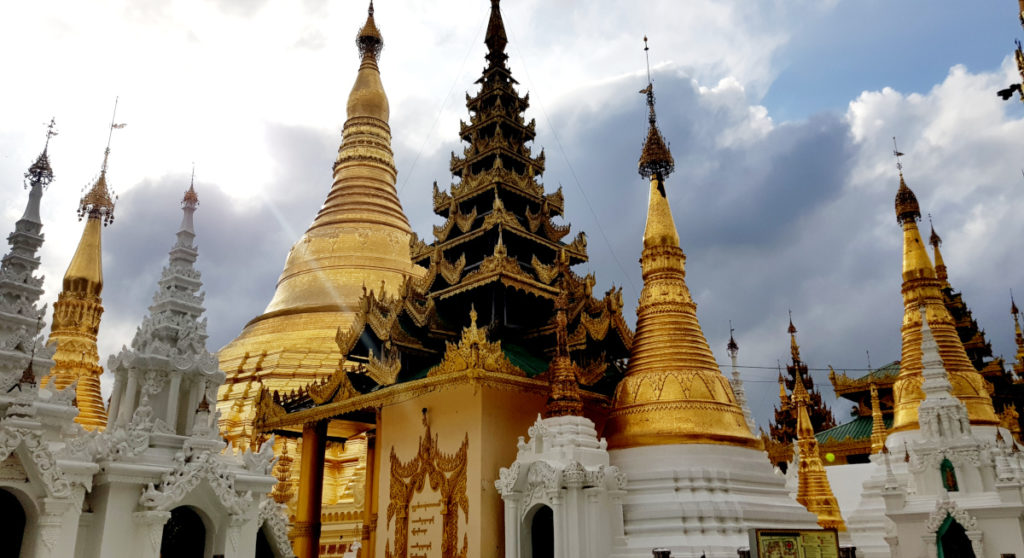
Although the sessions were loaded and intense, the delegates appreciated the serious study and presentations, particularly in naming, identifying and clarifying issues related to celibate chastity, sexuality and sexual identity in relation to Jesuit formation. These subjects are often difficult to talk about in an Asian context, where in many places they are considered sensitive and taboo. The presentations were, in fact, mostly based on a Western context, as Fr Gascon admits, because of the dearth of research in the Asian context. The invitation after the sessions was always for us to reflect on how the inputs made sense in our work of formation in our own provinces and regions.
Besides the presence of JCAP Formation Delegate Fr Riyo Mursanto SJ and JCAP Delegate for Studies Fr Robin Koning SJ, we were graced by the participation of Fr Mark Ravizza SJ, General Counsellor for Formation. He shared about formation vis-à-vis the new Universal Apostolic Preferences (UAPs) of the Society. Fr Ravizza emphasised understanding the preferences as “orientations” and not simply as priorities, thus, considering the UAPs as a “spiritual path” – “a dynamic means for continuing to be guided by the Spirit”, a new way of proceeding, a process of discernment.
The UAPs are given to us as “a guide to the renewal of life and mission that General Congregation 36 sought, to respond to who we want to be and how we are called to live”, said Fr Ravizza. They invite “each person, community and institution to enter into a process of discernment to hear and respond to the cries of the poor, the youth and the earth in their local context”. Therefore, the UAPs are an invitation to a “conversion that empowers the mission”. In this understanding, Fr Ravizza reminded us how the Spiritual Exercises, spiritual conversation and discernment in common are important tools that help us “to show the way to God”.
After three days of earnest discussions, we visited Campion Institute, the English language school, and the newly opened Myanmar Leadership Institute in Yangon to gain a better appreciation of the Society’s work in Myanmar. A visit to the country would be incomplete without stopping by the 2,500-year-old Shwedagon Pagoda, a magnificent Buddhist temple about 110 metres high, covered with gold plates and a stupa encrusted with over 4,000 diamonds. We ended the meeting with a prayer for the country and for the Jesuit Mission in Myanmar.


